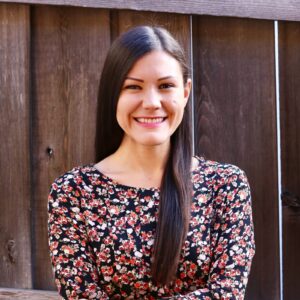A 5280 Fellow in the 2016-2017 session, Paloma Douglas found her work in the public school system informed and encouraged by the conversations she was having with her cohort members about faith and work. This is her narrative of her role, showing the program’s impact on her personal faith and daily tasks.
I sense a confessional-like quality in my work as I compile survey responses, groanings veiled by a screen of anonymity in the blank boxes of first and last name.
Staff bare their frustrations, insecurities, and sadnesses in the platform of a Google Survey because they know they cannot be judged by the face on the other side of the screen.
I am that face.
Most would not consider my job glamorous. My Fitbit racks up its daily recommended steps not because I am particularly athletic, but because I often run between departments and offices, gathering information so I can respond to emergencies and other urgent situations.
I spend many hours in the copy room and in setting up and tearing down events. Sometimes I input so many survey responses that I fear I’ve developed tendonitis. But I’ve learned to see those surveys as a gift, among many things, because in those small and menial spaces, God gives me great power to redeem.
One of my favorite times of day is having lunch with my diverse group of co-workers. Huddled around a corner table, cluttered with food from every culture to share, we grieve for loss, and we equally celebrate one another's joys — a graduation, a child's orchestra recital, a new roof.
My hours at the lunch table have opened doors for invitations into homes, to sit around a far more intimate table. I am welcomed and trusted — not because of departmental initiatives I've implemented, but because of the unexceptional hours I've sat next to them at their desks, fixing printer problems or replacing keyboards. "Is that a picture of your daughter in that frame?"
I realize not everyone is invited in.
I am also the first point of contact for complaints in our work, and I know this is the case for many — especially in the service industries. Instead of caving in to anxiety or anger, can we see beyond the snapping remarks that are more often than not directed at a larger system of failures and frustrations? Can we see beyond them into broken men and women longing for wholeness? Can we use them as opportunities to extend grace and perhaps change just one small thing as we are able to?
I cannot be responsible to what is not mine. But I can be responsible to the power, great or small, which I have been given.
Humility is not guaranteed in the low position. A dishwasher may drag her feet into the kitchen every evening, absent in every sense but the physical. And a CEO may approach every decision in servanthood to God and others.
Humility is revealed in how the space — be it the size of a cattle ranch or a blade of grass — has been tended.
So I offer these thoughts to the burned-out strivers, the overlooked, and those who feel insignificant in their work.
As keepers and watchmen of our spaces, we bear the responsibility to hold sacred and to wield our knowledge well, to offer words of encouragement as vulnerabilities are exposed.
In reading the survey response of a burdened and despairing employee, I am responsible to that information, to perhaps write a note of appreciation at the end of my next email: "Thank you for all you do. Your work is so valuable to us."
What redeeming power has God entrusted to you in your small space? I think you will find that your space is not so small after all.

